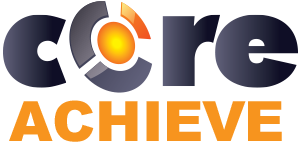Challenges When Implementing a Learning Management System and How to Overcome Them
March, 16 2023
Other posts:
Enhancing Team Dynamics for Effective Group Decision-Making with LMS Integration
Organizations increasingly rely on collaborative efforts to solve complex problems, innovate, and adapt to change, but how do we ensure that collaboration is happening.
Maximizing Small Business Potential with Training Technology
Training technologies can push small businesses ahead of their competitors, but what are the factors that go into choosing the right technology?
Unlocking Employee Potential: The Transformative Benefits of an Interactive Learning Management System (LMS)
Interactive training allows for unlocking employee potential, but how is it done?
Building a Robust Sales Pipeline with Training
Every organization wants a streamlined sales pipeline, but building one requires a series of interlocking activities with one of the most important being training.
Strategies for Adapting In-Person Training to Online Platforms
Online training is one of the most flexible ways of delivering training across organizations, but how do you even begin to adapt in-person training into online?
A LMS can make your training more efficient and effective--what's stopping your organization from implementing one?
Implementing a complex system like a Learning Management System (LMS) can be challenging and similar problems pop-up along the way. The following problems may be happening to you or are making your organization hesitant begin implementing a LMS, but there are strategies to overcome them.
Resistance to Change
Leaders and stakeholders can be resistant to any type of change especially if they don’t know the how or why for the change. To remedy this, you could include them in the decision making and planning, affording them more direct control. While including them, you could show them any training problems your organization may be having and then how a LMS could fix it. Allowing leaders to find for themselves the need is much more powerful than just claiming. Finally, you’ll want to make sure to have a plan for training and support after the LMS implemented—proving that things won’t just fall apart.
Integration with Existing Systems
Integration can be a painful process with unexpected issues wedged in-between the systems. However, this pain can be nullified with proper planning. Determining which systems need to be integrated first and which may cause the most issues allows problems to be handled one at a time and, for the most part, expected.
Content Creation and Management
Depending on your organization, creating learning content may be a necessity; yet it’ll take some time to get used to the new tools and to determine what is needed. To counter this, before implementing the LMS, you should know the topics to cover and have standards of creation so that no matter who is making the course, it’ll all click. CoreAchieve has an unlimited free option that allows course creation, so you could familiarize yourself with the tools far before implementation begins.
Data Security and Privacy
A LMS will most likely hold sensitive data of the organization and its people, so it is important to ensure that your chosen LMS features all of the security standards like having a SSL or hosting on secure servers. Clear, in-house organization standards for security and privacy will have to be established too and training must be delivered upon implementation.
Measuring ROI
Measuring the ROI of a LMS can be challenging, many times it’s not immediately clear how a LMS is impacting the outcomes of the business. By establishing clear goals for a LMS and determining what metrics can be used to measure those goals, it is possible to demonstrate the value being brought. This is only strengthened if the leaders are involved in that goal-defining process. Even if the LMS hits all of these goals, it is important to continuously improve on system.
Not Enough Manpower
A LMS can take a lot of time with both implementation and upkeep, which may steer some away or halt the process. The organization must plan the implementation to make it go as fast as possible and ensure that the person in charge has enough time. However, if this isn’t feasible CoreAchieve offers management services that are much cheaper than hiring new talent.
Every organization is unique and the challenges that one faces while implementing a LMS will be different from another, but many of those challenges can be addressed by thorough and thoughtful planning.
Get started with CoreAchieve for free.
Photo by Possessed Photography on Unsplash

Leave comment: